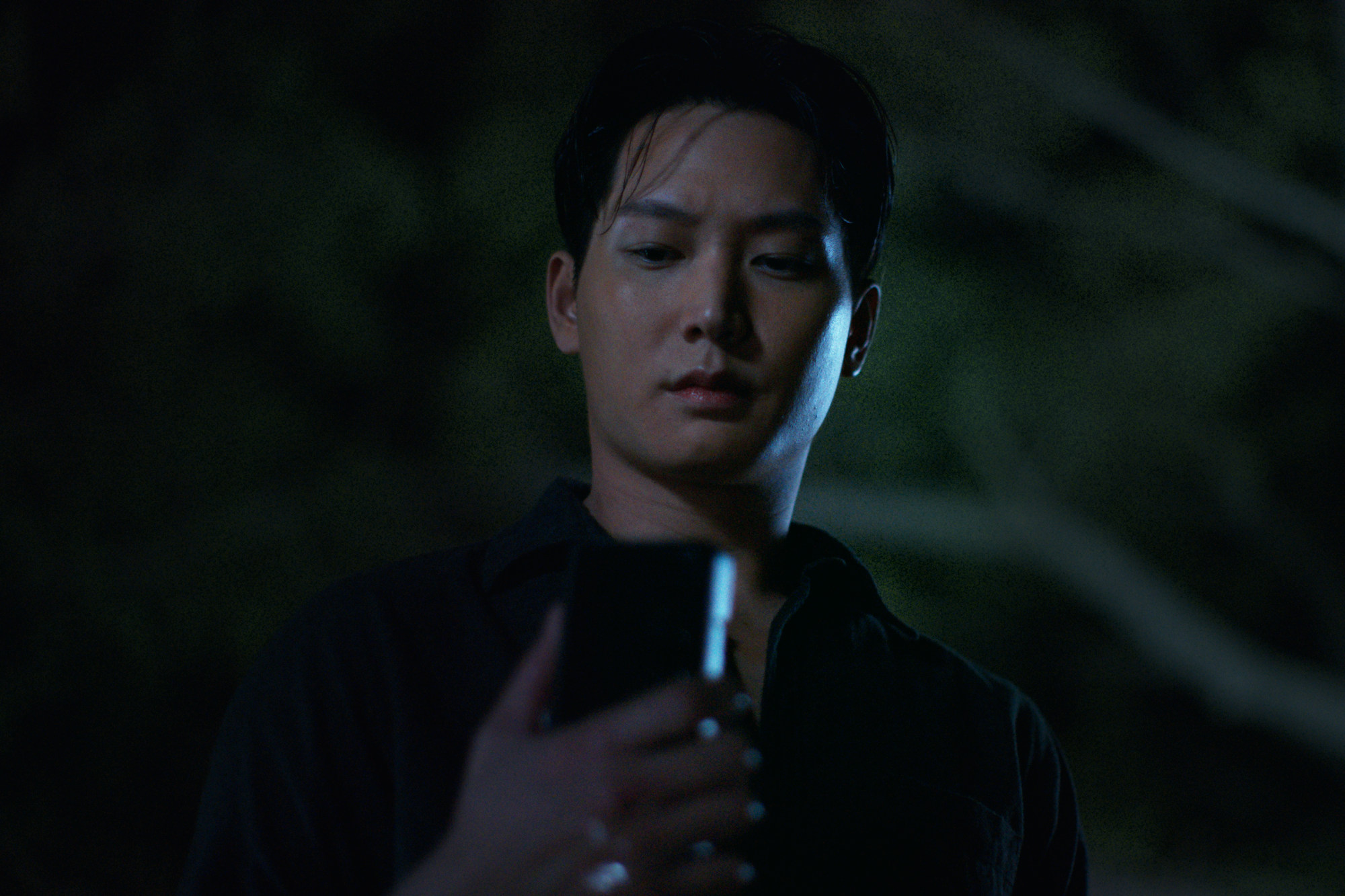
Netflix drama Delete: Thai mystery thriller series by Shutter director promises further intrigues in tale of love, hate and infidelity
- Shutter director Parkpoom Wongpoom’s series tells a story of infidelity, controlling partners and a strange, phone-like device that can ‘delete’ people
- Unhappily married Lilly (Sarika Sartsilpsupa) innocently ‘deletes’ a teenage girl, then hangs on to the device, tempted by its ability to remove people
A phone with the power to make people disappear is the inciting force in Delete, a new mystery thriller series from Parkpoom Wongpoom, the creative force behind acclaimed Thai genre offerings including Phobia and Homestay.
A notable cast including Nat Kitcharit and Chutimon Chuengcharoensukying are among the troubled individuals tempted by the idea of “deleting” people from their lives.
The show opens with a distraught teenage girl approaching Lilly (Sarika Sartsilpsupa) in a supermarket, and asking her to take her photograph using a strange, phone-like device.
Upon doing so, the girl disappears in a blaze of white light. Lilly lets the device fall to the floor, but we learn later she has in fact taken it with her.
Jumping back to a week earlier, we discover that Lilly is unhappily married to Too (Natara Nopparatayapon), the wealthy but cold-hearted owner of a vast rural estate.
She has found solace in a romantic fling with a young writer, Aim (Nat Kitcharit), who is the toast of the town following the publication of a memoir detailing his traumatic childhood.
Let’s Get Divorced: Netflix’s Japanese break-up romcom is fun but too long
Aim is also being unfaithful. He lives with photographer Orn (Chutimon Chuengcharoensukying), who grows immediately suspicious of his behaviour and soon discovers the affair.
She threatens to expose his infidelity to the public, while also suggesting that she knows his memoir might be less than truthful.
While Aim longs to leave Orn for Lilly, both lovers know that escaping from the controlling Too is easier said than done.

Suffice to say that Delete immediately sets up a central conflict, in which all parties might have use for a device such as the one Lilly suddenly finds herself in possession of.
But what exactly does it do? Where does it come from and how does it work? Are the deleted victims dead? Are they gone for good, or have they merely been transported somewhere else? Why would the young girl who approached Lilly voluntarily wish to be “deleted” if it was permanent?
The show’s first episode throws out a number of intriguing possibilities, and builds to a climax which not only confirms our fears that the device will be put to use, but reveals that nobody is safe.

This is not the first time Parkpoom has expressed a wariness for the lens in his work. His debut feature, Shutter, involved a photographer who exposed malevolent spirits through the images he captured with his camera.
Released during the Asia Extreme wave of horror films that ignited the international marketplace at the turn of the millennium, Shutter was enthusiastically grouped together with the J-horror output of Hideo Nakata, Takashi Shimizu and others.
How Netflix film Hunger uses fine dining in Thailand to address inequality
The water-cooler hook of its central premise is also likely to make Delete a popular topic of conversation, something encouraged by the show’s marketing, which urges its protagonists – and viewers – to delete “all the mistakes, memories, love, betrayal and hate”.
The campaign also reveals that Jinjett Wattanasin and Charlette Wasita Hermenau will play pivotal roles in the unfolding mystery, but their characters have yet to appear on screen.
For the time being, Delete reveals to us only that, in Parkpoom’s world view at least, ordinary people are willing to go to extraordinary lengths to get what they want and to be free from controlling forces and unwanted obstacles in their way.

Whether the road ahead is specifically horror-infused or science fiction-esque – or will reveal something else entirely – remains to be seen.
Delete will start streaming on Netflix on June 28.

